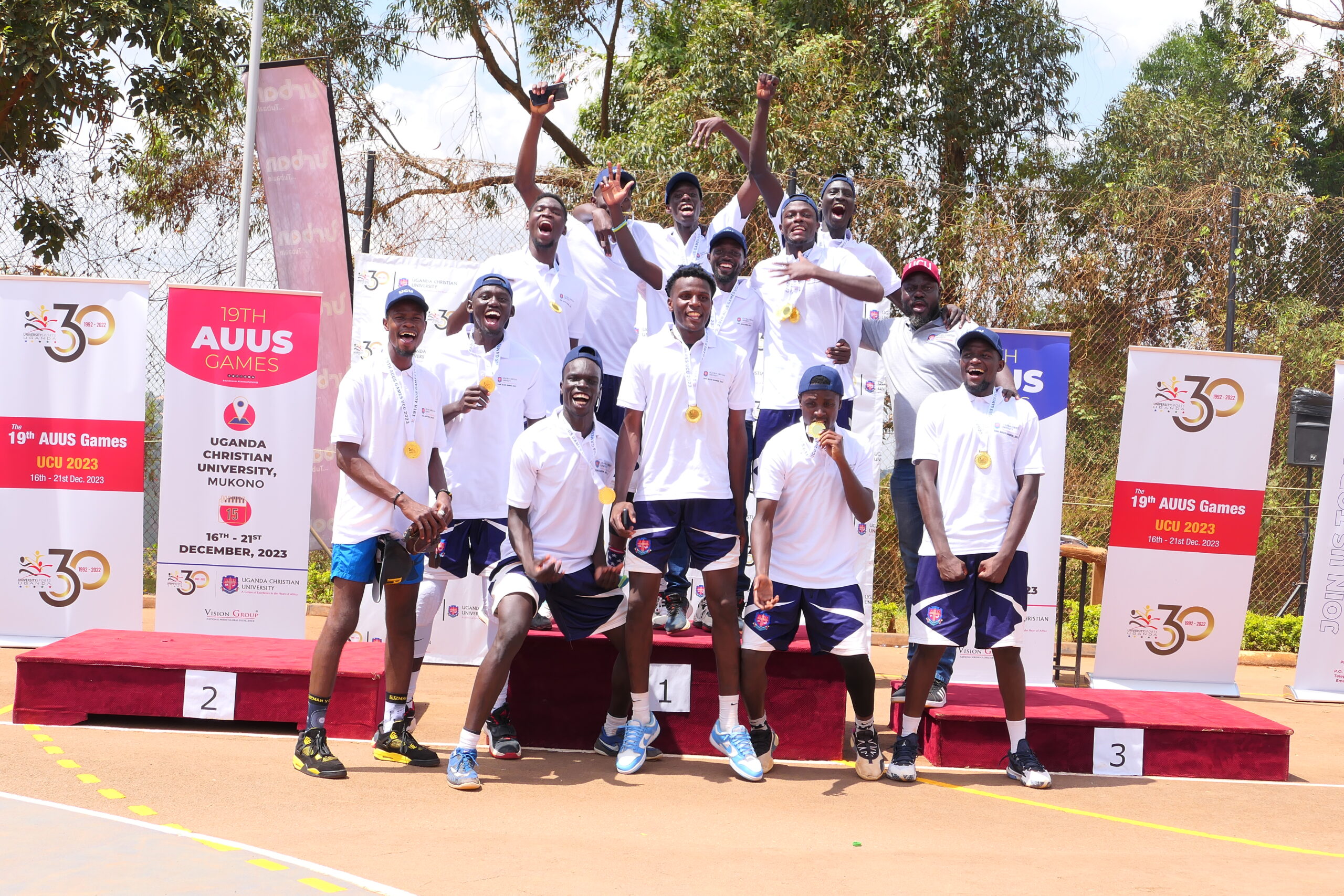UCU to host AUUS Games 16th Dec 2023
Uganda Christian University (UCU) has expressed readiness to host Inter-University games that will
By Jimmy Siyasa
For the 5th edition of the All Africa Horticultural Congress, a delegation from Uganda Christian University (UCU), led by the Vice Chancellor Prof. Aaron Mushengyezi, has convened in Marrakech, Morocco. Notably, they are not only participating in the event but also actively bidding for UCU to host the next Congress in Uganda in 2028.
This prestigious conference typically draws over 500 delegates, scientists, and researchers from various corners of the globe. UCU is collaboratively working on this with key stakeholders, including the Ministry of Agriculture, Animal Industry, and Fisheries, the Makerere University Regional Centre for Crop Improvement, and the National Agricultural Research Organisation (NARO).

Delegates gathered during one of the sessions. Courtesy picture.
The UCU delegation comprises, notably, the Deputy Vice Chancellor for Finance and Administration, Mr. David Mugawe, and Director of Research, Partnerships, and Innovation, Assoc. Prof. Elizabeth B. Kizito, among others, who are actively involved in advancing the university’s initiatives.
The conference themed “Unlocking the potential of a resilient Horticulture in Africa” started on February 26, 2024, at the Mohammed VI Polytechnic University in Benguerir. It will end on March 1, 2024.


The All-Africa Horticultural Congress (AAHC) is the most important scientific event organized every four years in the fields of Horticulture in Africa under the auspices of ISHS. Morocco was assigned the organization of the fifth edition of this Congress, and this will be the first time such event will be held in North Africa.
The previous four AAHC took place in Kenya in 2009, South Africa in 2012, Nigeria in 2016 and Senegal in 2020, corresponding to East Africa, South Africa, Central Africa and Western Africa, respectively.
The International Society for Horticultural Science (ISHS) is the largest global horticulture network comprising over 6,000 members. Its aim is to promote and foster research and education in horticultural science, support industry and to facilitate cooperation and knowledge transfer on a global scale through events and publications.
The development of Horticulture in Africa is one of the main tools that can help ensure food security by increasing agricultural productivity and improve the competitiveness of its products. It can also strengthen its contribution to the overall wellbeing of the population, improve dietary and nutritional behavior, create wealth, alleviate hunger, and reduce dependency on food imports.
The African population is essentially rural and contributes significantly to agricultural production which in turn contributes to nutrition, food security and socio-economic development of these populations.
In Morocco, Agriculture contributes, on average, 13% to Morocco’s GDP and employs about 40% of the nation’s workforce. The country has several agroclimatic regions including Mediterranean in the North, semi-arid in the Middle and arid-to-desert in the South with somewhat mild/cold in the higher altitudes and, thus, produces a great diversity of agricultural products including horticultural crops such as fruits, vegetables, medicinal and aromatic species, flowers, and ornamental plants.
Production is mostly in open field but crops such as tomatoes, pepper, berries, banana, and flowers are also produced under plastic-covered greenhouses. Most of the production is for the domestic market but a significant percentage, particularly fruits, vegetables and flowers go to export markets including Africa, Europe, and North America. Operators of the sector are all private. Many small-scale growers are organized in cooperatives and associations to ease their production, marketing and export.
In recent years, the horticultural sector in Africa has been facing several constraints and worldwide challenges including climate change with global warming, outbreaks of new pests and diseases, pandemics such as Covid-19, low precipitations and water shortage for irrigation, heat stress and scarcity of investment and funding of new development projects.
“Unlocking the potential of a resilient Horticulture in Africa” is the theme of the fifth AAHC, with the objective to discuss and promote the huge potential of African Horticulture. The event will provide a platform for professionals of horticulture, researchers, young scientists, and entrepreneurs, where they can share their research results, experiences and latest innovations. It will be an occasion to consolidate and expand a network of technical cooperation between professionals of horticulture throughout Africa and the rest of the world. Young and more experienced scientists will have ample opportunities to interact and explore scientific and technical exchanges and partnerships for research and development initiatives. In addition, the Congress will raise and discuss aspects related to the impact of climate change, invasive diseases and pests and other biotic and abiotic stresses on current and future horticulture.
Furthermore, socio-economic, and financial aspects related to food security, market issues, best use and management of natural resources in the fields of horticulture will be tackled. Issues such as contribution of horticulture to wealth creation, alleviating poverty, empowering youth, and women will also be discussed.
The organizing committee is deploying all means possible to make the Marrakech edition of the AAHC Congress (AAHC2024) a successful and an exceptional one. The meeting will focus on hosting an outstanding scientific and technical event, reinforcing the links between research and development, education, industry, public and private and non-government organizations and enhancing the links between African countries as well as between Africa and the rest of the World.
Uganda Christian University (UCU) has expressed readiness to host Inter-University games that will
Renowned for its research excellence, the Uganda Christian University (UCU) Faculty of Agricultural
Home Students Research Academics About Us Contact Us X UCU student narrates journey
UCU engaged in phase 2 of Uganda’s yellow fever vaccination campaign By Irene

256 312 350 800
info@ucu.ac.ug